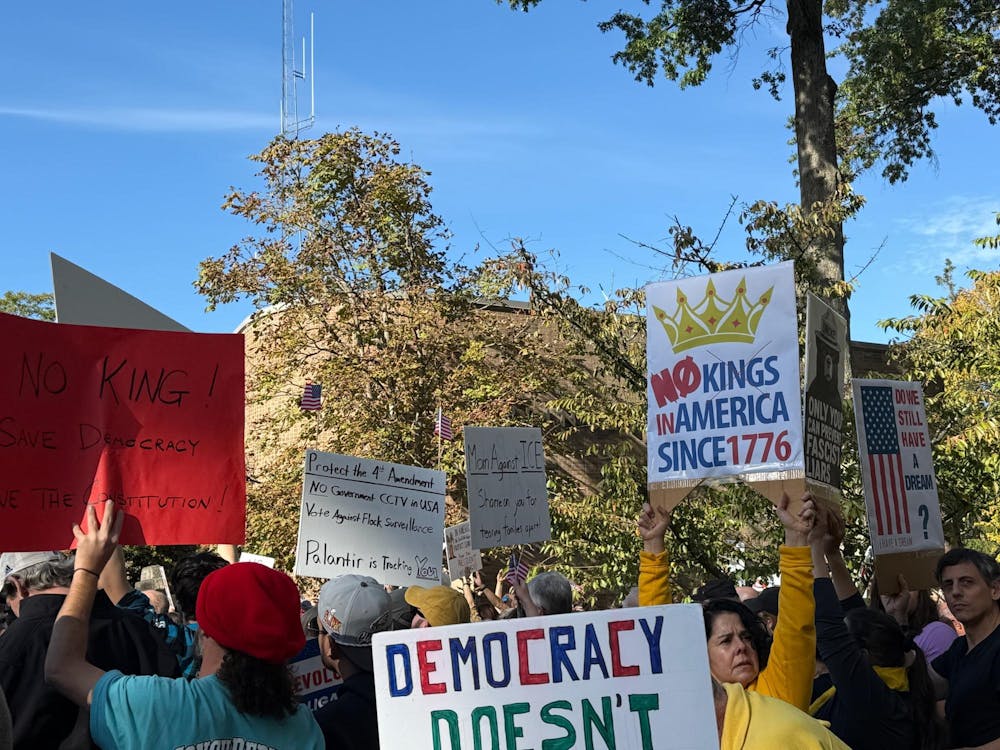“Executive order number one on day one: we’re getting rid of the Immigrant Trust Directive here in New Jersey,” Republican gubernatorial candidate Jack Ciattarelli told a cheering crowd during the Sept. 22 New Jersey Governor’s Debate.
The Immigrant Trust Directive (ITD) is a policy issued by New Jersey’s Attorney General in 2018 ensuring that “victims and witnesses feel safe reporting crimes to local police without fear of deportation,” restricting cooperation between law enforcement and agencies such as Immigration and Customs Enforcement (ICE).
Under a Ciattarelli administration, the ITD could be withdrawn, opening the door to local law enforcement cooperation with federal immigration authorities. Even under Democrat Mikie Sherrill’s potential administration, the ITD’s future is uncertain. Sherrill declined at a recent debate to say whether she would keep the directive, although has historically praised the policy and described it as “a plan that’s working.”
With less than a week to the New Jersey gubernatorial election on Nov. 4, most independent polls place Sherrill ahead of Ciattarelli by five to ten percentage points. However, an Oct. 22 publication from Rutgers University’s Eagleton Institute of Politics noted that her advantage remains “within the margin of error.”
Conversations around increased immigrant protections in Princeton, according to immigration lawyer Ryan Lilienthal, trace back to the town’s historical treatment of its immigrant population. Immigrants in Princeton have long had a troubled perception of the police, Lilienthal said.
“[Undocumented immigrants] were called ‘walking ATMs,’” he told The Daily Princetonian. “They weren’t allowed to get bank accounts, and so they carried a lot of cash on them. That was one profile of a target of robberies.”
Lilienthal said a pattern of crimes against undocumented immigrants has developed into a general distrust of authorities among immigrant communities even today — a distrust which he said extends to international University students. Lilienthal claimed that, in particular cases, international University students victimized in crimes have “refused to cooperate as a witness for fear of immigration consequences.”
Efforts over the past few years to better enforce the ITD have encountered several obstacles across the state. One such effort is the Immigrant Trust Act (ITA), which seeks to codify the guidelines of the ITD into state law. If passed, the ITA would require a stricter separation between municipal law enforcement and federal immigration enforcement, with violations subject to legal consequences.

The ITA was proposed in September 2024, but has remained at a standstill in its path to legal passage.
“It is a tough political environment for people to feel like they can stick their necks out for non-citizens,” said Molly Linhorst, an attorney with the American Civil Liberties Union (ACLU), in an interview with the ‘Prince.’ “At the end of the day, it’s a human issue, and it’s an issue of whether or not families can stay together, but it is something that is highly politicized.”
Asma Elhuni, an organizer for local immigrant rights group Resistencia en Acción NJ, pointed to Hoboken, N.J., as an example of a city facing repercussions due to its “sanctuary city” protections for undocumented migrants. Its policies, which Elhuni described as “a version of the ITA,” led to the Trump administration suing the city.
Elhuni, however, told the ‘Prince’ that “the idea shouldn’t be to run away and not get sued — it’s actually to stand up to [Trump] and to actually fight him, because that’s how we win.”

Linhorst argued that several loopholes in the state’s current implementation of the ITD allow police officers to assist ICE. For example, Linhorst said that depending on an immigrant’s criminal and conviction history, information could be exchanged between federal and local enforcement officials. While the ITA aims to resolve these carve-outs, Linhorst explained that they create a “kind of Swiss cheese [effect] rather than a direct, clear wall between local law enforcement and federal ICE.”
In Princeton, however, officials have delineated a clear-cut line between federal and local law enforcement. “The Princeton Police Department does not participate in the enforcement of federal civil immigration matters,” Matthew Solovay, the Chief of Princeton Police, wrote in a statement to the ‘Prince.’
“Quite clearly, our officers do not take part in ICE operations. [ICE] is not required to notify local police departments before conducting activity in any municipality, and no advance notice was provided during the most recent operations,” he continued. At least 15 people have been detained in Princeton by federal immigration authorities this year.
Still, advocates for the ITA voiced concerns for the future of immigrant rights amid a backdrop of increased ICE raids across the state. The pending ITA serves not only to codify the goals of the ITD, but also to broaden its scope and authority.
“We believe that [the ITD] was a good step by implementing [the directive] throughout the state, but we really don’t feel it’s gone far enough,” Elhuni added.
“We have plenty of sponsors on the ITA — loads of sponsors. The problem is in the leadership,” she said, pointing to substantial community support in Princeton for the passage of the act and inaction in the Democratic state legislature.
In the lead-up to the governor’s election this November, immigration remains a key voting issue.
“The attorney general who comes next will be really important in determining the future of the state,” Linhorst said. “We are built on and made up of immigrant communities. I hope folks keep that in mind when they go to the polls and think about what kind of state they want to live in.”
Sena Chang is a senior News writer and Features contributor for the ‘Prince.’ She typically covers town topics and campus unions. She can be reached at sc3046[at]princeton.edu.
Teresa Chen is a News contributor from Shanghai, China. She can be reached at tc7069[at]princeton.edu.
Please send any corrections to corrections[at]dailyprincetonian.com.








